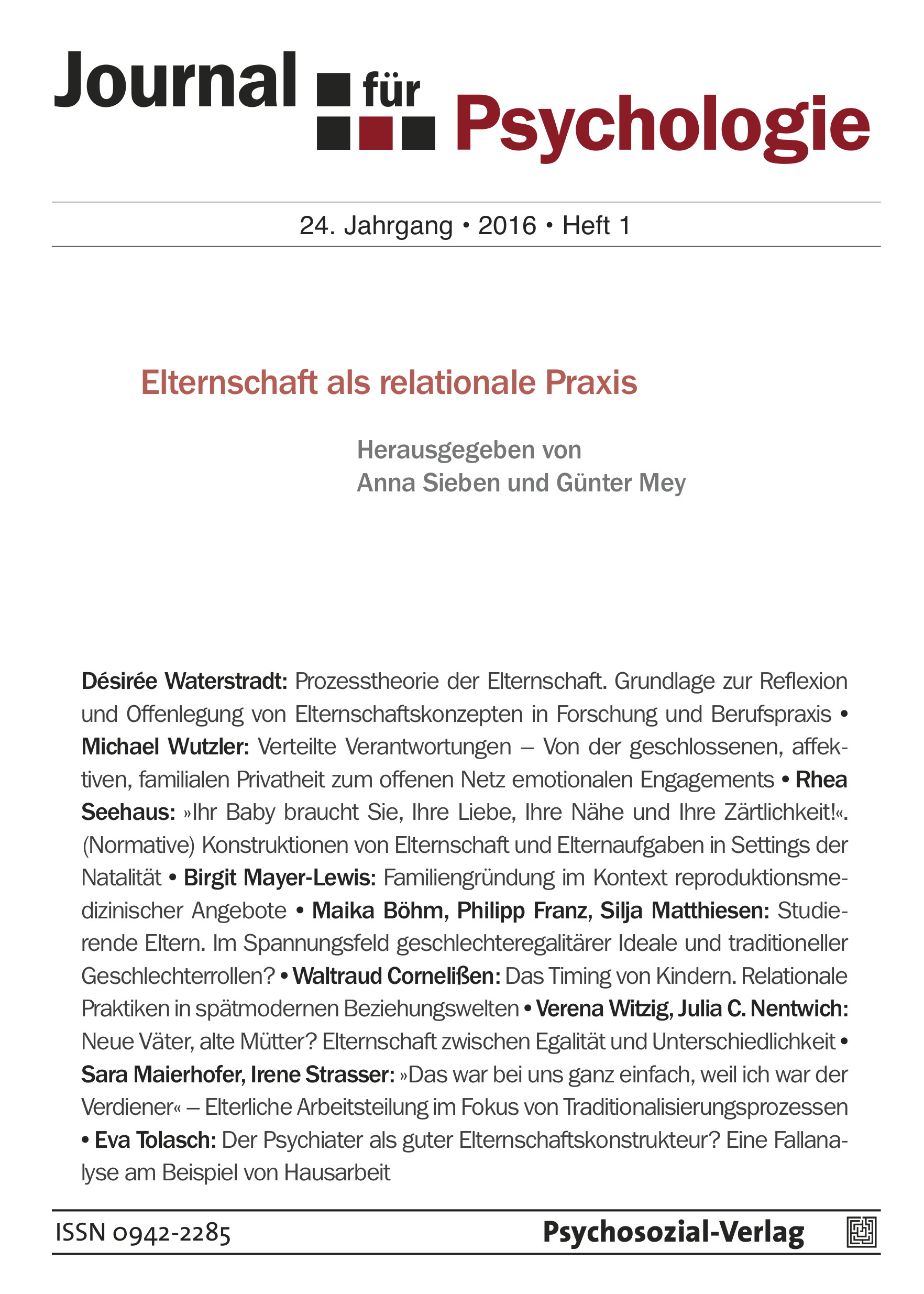»In our case it was rather easy, because I have been the earner« – A study of parental division of labor focusing processes of traditionalization
Keywords:
Transition to parenthood, parental leave, parenting roles, work-life-balance, gender equality, qualitative content analysisAbstract
A lot of things change at the transition to parenthood: not only many aspects of everyday life, but also concrete images of parenthood, or, motherhood and fatherhood respectively. Many couples show equality in division of labor today, but this often changes after the first child is born. Men are – following a traditional image of division of work – still responsible for wage labor, whereas women are responsible for household work. Even though the commitment to this arrangement is decreasing (Notz 2010), reality shows us that only a little has changed so far. Within an interview study we investigated whether partners implicitly or explicitly negotiate roles and division in advance. In our study we asked seven couples how they arranged work and responsibilities before and after the birth of their first child, as well as after the re-entry into work of both parents. Data were analyzed using content analysis. Almost all couples showed equal division of work when they had no child, this changed to some extent when the first child was born. The interviews exposed some interesting areas of conflict, for example when it comes to responsibility for household work, or regarding the question who would be going to stay at home with the child. Besides the demands of being at home with the child, several determining external factors seem to have a strong impact on the decision who is going to stay at home, at least when it comes to becoming a stay-at-home-father.Downloads
Published
2012-02-22
How to Cite
Maierhofer, Sara, and Irene Strasser. 2012. “»In Our Case It Was Rather Easy, Because I Have Been the Earner« – A Study of Parental Division of Labor Focusing Processes of Traditionalization”. Journal für Psychologie 24 (1). https://journal-fuer-psychologie.de/article/view/398.
Issue
Section
Schwerpunkt
License
This license allows private use and unmodified distribution, but prohibits editing and commercial use (further information can be found at: https://creativecommons.org/licenses/by-nc-nd/4.0/).
The terms of the Creative Commons licence only apply to the original material. The reuse of material from other sources (marked with a reference) such as charts, illustrations, photos and text extracts may require further permission for use from the respective copyrights holder.



